
2016年1月11日 星期一
Week 17 chap 29-30(English Vocabulary and Etymology)
Vocabulary
1.dis-prefix means"away''
Example-discreet(careful for everything you say and do)
disability(a mental condition that you think can't do anything to help)
disagree(that everyone get different opinion from the others)
2.ad-prefix means "toward"
Example-adroit(skillful and clever)
advocate(to speak or write in favor of)
advertise(to tell a public about the product to encourage people to buy it)
3.op-prefix means"against"
Example-opponent(a game or fight someone is your enemy)
opinion(a belief or judgment that rests on grounds insufficient to produce complete certainty.)
oppilate(to stop up; fill with obstructing matter; obstruct.)
4.ir-prefix means" not"
Example-irreparable(too bad and serious to fix again)
irascible(becoming angry very easily)
irresistible(so strong that can't stop or resisted)
5.-al suffix means"having something of"
Example- removal(change of residence, position, etc)
refusal(an act or instance of refusing.)
approval(formal permission or sanction.)
6.statesman/ˈsteɪts mən/noun- a person who is experienced in the art of government or versed in the administration of government affairs.
Example-He could have played the statesman, competing for the center.
7.henpeck/ˈhɛnˌpɛk/ verb- to browbeat, bully, or intimidate (one's husband, boyfriend, etc.)
Example-My mom is going to henpeck my father for no reason.
8.consent/kənˈsɛnt/verb- to permit, approve, or agree; comply or yield
Example-As a result, Live stream, without the consent of the team, upgraded the Global Revolution account to premium.
9.reach/kənˈsɛnt/verb - to come to or arrive at in some course of progress, action, etc.
Example-France have reached their agreement/goal this summer.
1.dis-prefix means"away''
Example-discreet(careful for everything you say and do)
disability(a mental condition that you think can't do anything to help)
disagree(that everyone get different opinion from the others)
2.ad-prefix means "toward"
Example-adroit(skillful and clever)
advocate(to speak or write in favor of)
advertise(to tell a public about the product to encourage people to buy it)
3.op-prefix means"against"
Example-opponent(a game or fight someone is your enemy)
opinion(a belief or judgment that rests on grounds insufficient to produce complete certainty.)
oppilate(to stop up; fill with obstructing matter; obstruct.)
4.ir-prefix means" not"
Example-irreparable(too bad and serious to fix again)
irascible(becoming angry very easily)
irresistible(so strong that can't stop or resisted)
5.-al suffix means"having something of"
Example- removal(change of residence, position, etc)
refusal(an act or instance of refusing.)
approval(formal permission or sanction.)
6.statesman/ˈsteɪts mən/noun- a person who is experienced in the art of government or versed in the administration of government affairs.
Example-He could have played the statesman, competing for the center.
7.henpeck/ˈhɛnˌpɛk/ verb- to browbeat, bully, or intimidate (one's husband, boyfriend, etc.)
Example-My mom is going to henpeck my father for no reason.
8.consent/kənˈsɛnt/verb- to permit, approve, or agree; comply or yield
Example-As a result, Live stream, without the consent of the team, upgraded the Global Revolution account to premium.
9.reach/kənˈsɛnt/verb - to come to or arrive at in some course of progress, action, etc.
Example-France have reached their agreement/goal this summer.
10.complement/ˈkɒm plə mən/noun- an expression of praise, commendation, or admiration.
Example-He is careful not to exaggerate expectations, calling the new device a complement, not a cure.
1. Ethnic group - is a category of people who identify with each other based on common ancestral, social, cultural or national experience. Unlike most other social groups, ethnicity is primarily an inherited status. Membership of an ethnic group tends to be defined by a shared cultural heritage, ancestry, origin myth, history, homeland, language and/or dialect, symbolic systems such as religion, mythology and ritual, cuisine, dressing style, art, and physical appearance.

2.Harriet Tubman-An African-American abolitionist, humanitarian, and, during the American Civil War, a Union spy. Born into slavery, Tubman escaped and subsequently made some thirteen missions to rescue approximately seventy enslaved family and friends, using the network of antislavery activists and safe houses known as the Underground Railroad,and in the post-war era was an active participant in the struggle for women's suffrage.

3.Hispanic - refers to the peoples, nations, and cultures that have a historical link to Spain. It commonly applies to countries once colonized by Spain, particularly the countries of Latin America. It could be argued that the term should apply to all Spanish-speaking cultures or countries, as the historical roots of the word specifically pertain to the Iberian region. It is difficult to label a nation or culture with one term.
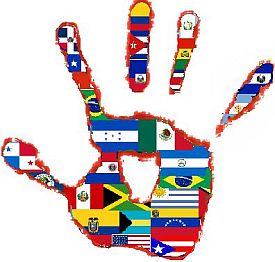

Example-He is careful not to exaggerate expectations, calling the new device a complement, not a cure.
1. Ethnic group - is a category of people who identify with each other based on common ancestral, social, cultural or national experience. Unlike most other social groups, ethnicity is primarily an inherited status. Membership of an ethnic group tends to be defined by a shared cultural heritage, ancestry, origin myth, history, homeland, language and/or dialect, symbolic systems such as religion, mythology and ritual, cuisine, dressing style, art, and physical appearance.
2.Harriet Tubman-An African-American abolitionist, humanitarian, and, during the American Civil War, a Union spy. Born into slavery, Tubman escaped and subsequently made some thirteen missions to rescue approximately seventy enslaved family and friends, using the network of antislavery activists and safe houses known as the Underground Railroad,and in the post-war era was an active participant in the struggle for women's suffrage.
3.Hispanic - refers to the peoples, nations, and cultures that have a historical link to Spain. It commonly applies to countries once colonized by Spain, particularly the countries of Latin America. It could be argued that the term should apply to all Spanish-speaking cultures or countries, as the historical roots of the word specifically pertain to the Iberian region. It is difficult to label a nation or culture with one term.

4.Afro-American- referred to as Black Americans or Afro-Americans are an ethnic group of Americans (citizens or residents of the United States) with total or partial ancestry from any of the Black racial groups of Africa. The term may also be used to include only those individuals who are descended from enslaved Africans. As a compound adjective the term is usually hyphenated as African-American.
Week16 chap 27-28(English Vocabulary and Etymology)
Vocabulary
1.cardi-prefix means" heart"
Example-cardinal (Roman Catholic Church.)
cardiac ( relating to the heart)
cardiologist(a doctor who study heart disease)
2.mega-prefixmeans"big"
Example-megalomania ( a symptom of mental illness marked by delusions of greatness, wealth, etc)
megastar ( a very well-known personality in the entertainment business)
megaphone(a device for making your sound louder)
3.post- prefix means "behind"
Example-postdate ( to follow in time)
postpone (to put off to a later time; defer)
postage(the cost of sending a letter )
4.trans- prefix means "across"
Example-transcend ( to rise above or go beyond; overpass; exceed)
transcript (a written, typewritten, or printed copy)
transition (a process of changing in one statement or condition)
5.nano-prefix means"extremely small'
Example-nanotechnology ( a technology executed on the scale of less than 100 nanometers, the goal of which is to control individual atoms and molecules.)
nanocircuit(one thousand millionth of a metre )
nanofossil(extremely small pieces of fossil)
6.hyper- prefix means"over / beyond"
Example-hyperactive (displaying exaggerated physical activity sometimes associated with neurological or psychologic causes.)
hypertension (excessive or extreme emotional tenseness)
hyperlink(a place of electronic document on a computer that linked to one another )
7.hypo-prefix means"under"
Example-hypodermic (characterized by the introduction of medicine or drugs under the skin)
hypocrisy (the practice of professing standards, beliefs, etc.)
hypochondria (excessive worry or talk about one's health)
8.ndum-suffix means" to be done"
Example-referendum (the principle or practice of referring measures proposed or passed by a legislative)
memorandum (a short note designating something to be remembered.)
corundum(something is extremely hard form of alumina in rubies)
1.Stigma-A term used by members of the Christian faith to describe body marks, sores, or sensations of pain in locations corresponding to the crucifixion wounds of Jesus Christ, such as the hands, wrists, and feet causing extreme pain and torrid affect of humiliation. An individual bearing the wounds of Stigmata is referred to as a Stigmatist.
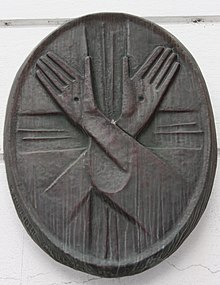
2.St. Francis of assisi-An Italian Roman Catholic friar and preacher. He founded the men's Order of Friars Minor, the women’s Order of Saint Clare, the Third Order of Saint Francis and the Custody of the Holy Land. Francis is one of the most venerated religious figures in history.
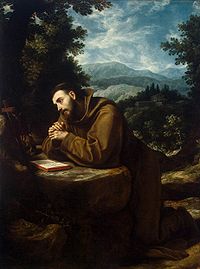
3.Pope-The Bishop of Rome and the leader of the worldwide Catholic Church. The primacy of the Roman bishop is largely derived from his role as the traditional successor to Saint Peter, to whom Jesus is supposed to have given the keys of Heaven and the powers of "binding and loosing", naming him as the "rock" upon which the church would be built. The current pope is Francis, who was elected on 13 March 2013, succeeding Benedict XVI.

4.St. Peter-Pope-According to the New Testament, Saint Peter was one of the Twelve Apostles of Jesus Christ, leaders of the early Christian Church. The Roman Catholic Church considers him to be the first Pope, ordained by Jesus in the "Rock of My Church" dialogue in Matthew 16:18. The ancient Christian churches all venerate Peter as a major saint and associate him with founding the Church of Antioch and later the Church in Rome, but differ about the authority of his various successors in present-day Christianity.
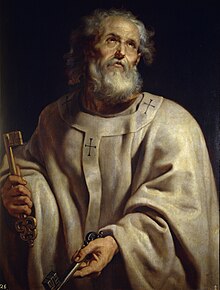
5.Key of Heaven-In the Gospel of Matthew 16:19, Jesus says to Peter, "I will give you the keys of the kingdom of heaven, and whatever you bind on earth shall be bound in heaven, and whatever you loose on earth shall be loosed in heaven."

6.Pope Benedict XVI-Pope of the Catholic Church from 2005 until his resignation on 11 February 2013,, citing a "lack of strength of mind and body" due to his advanced age. He is the first pope to resign since Pope Gregory XII in 1415, and the first to do so on his own initiative since Pope Celestine V in 1294. As pope emeritus, Benedict retains the style of His Holiness, and continues to dress in the papal color of white. He was succeeded by Pope Francis on 13 March 2013, and he moved into the newly renovated Mater Ecclesiae monastery for his retirement on 2 May 2013.
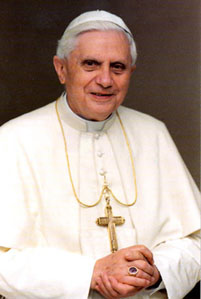
7.Pope Francis -he is the 266th Pope of the Roman Catholic Church. Following the resignation of Pope Benedict XVI on 28 February 2013. He chose Francis as his papal name in honor of Saint Francis of Assisi. Throughout his public life, Pope Francis has been noted for his humility, emphasis on God's mercy, concern for the poor, and commitment to interfaith dialogue. He is credited with having a humble, less formal approach to the papacy than his predecessors, for instance choosing to reside in the Domus Sanctae Marthae guesthouse rather than in the papal apartments of the Apostolic Palace used by his predecessors.
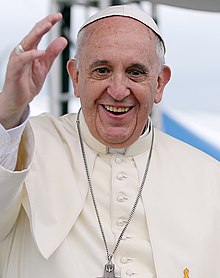
8.Stephen Crane(November 1, 1871 – June 5, 1900)- was an American poet, novelist, and short story writer. Prolific throughout his short life, he wrote notable works in the Realist tradition as well as early examples of American Naturalism and Impressionism. He is recognized by modern critics as one of the most innovative writers of his generation.
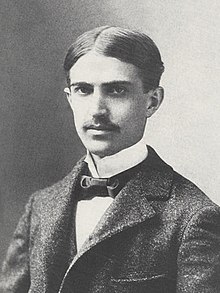
The Red Badge of Courage is a war novel by American by Stephen Crane (1871–1900). Taking place during the American Civil War, the story is about a young private of the Union Army, Henry Fleming, who flees from the field of battle.When his regiment once again faces the enemy, Henry acts as standard-bearer.
1.cardi-prefix means" heart"
Example-cardinal (Roman Catholic Church.)
cardiac ( relating to the heart)
cardiologist(a doctor who study heart disease)
2.mega-prefixmeans"big"
Example-megalomania ( a symptom of mental illness marked by delusions of greatness, wealth, etc)
megastar ( a very well-known personality in the entertainment business)
megaphone(a device for making your sound louder)
3.post- prefix means "behind"
Example-postdate ( to follow in time)
postpone (to put off to a later time; defer)
postage(the cost of sending a letter )
4.trans- prefix means "across"
Example-transcend ( to rise above or go beyond; overpass; exceed)
transcript (a written, typewritten, or printed copy)
transition (a process of changing in one statement or condition)
5.nano-prefix means"extremely small'
Example-nanotechnology ( a technology executed on the scale of less than 100 nanometers, the goal of which is to control individual atoms and molecules.)
nanocircuit(one thousand millionth of a metre )
nanofossil(extremely small pieces of fossil)
6.hyper- prefix means"over / beyond"
Example-hyperactive (displaying exaggerated physical activity sometimes associated with neurological or psychologic causes.)
hypertension (excessive or extreme emotional tenseness)
hyperlink(a place of electronic document on a computer that linked to one another )
7.hypo-prefix means"under"
Example-hypodermic (characterized by the introduction of medicine or drugs under the skin)
hypocrisy (the practice of professing standards, beliefs, etc.)
hypochondria (excessive worry or talk about one's health)
8.ndum-suffix means" to be done"
Example-referendum (the principle or practice of referring measures proposed or passed by a legislative)
memorandum (a short note designating something to be remembered.)
corundum(something is extremely hard form of alumina in rubies)
1.Stigma-A term used by members of the Christian faith to describe body marks, sores, or sensations of pain in locations corresponding to the crucifixion wounds of Jesus Christ, such as the hands, wrists, and feet causing extreme pain and torrid affect of humiliation. An individual bearing the wounds of Stigmata is referred to as a Stigmatist.

2.St. Francis of assisi-An Italian Roman Catholic friar and preacher. He founded the men's Order of Friars Minor, the women’s Order of Saint Clare, the Third Order of Saint Francis and the Custody of the Holy Land. Francis is one of the most venerated religious figures in history.

3.Pope-The Bishop of Rome and the leader of the worldwide Catholic Church. The primacy of the Roman bishop is largely derived from his role as the traditional successor to Saint Peter, to whom Jesus is supposed to have given the keys of Heaven and the powers of "binding and loosing", naming him as the "rock" upon which the church would be built. The current pope is Francis, who was elected on 13 March 2013, succeeding Benedict XVI.

4.St. Peter-Pope-According to the New Testament, Saint Peter was one of the Twelve Apostles of Jesus Christ, leaders of the early Christian Church. The Roman Catholic Church considers him to be the first Pope, ordained by Jesus in the "Rock of My Church" dialogue in Matthew 16:18. The ancient Christian churches all venerate Peter as a major saint and associate him with founding the Church of Antioch and later the Church in Rome, but differ about the authority of his various successors in present-day Christianity.

5.Key of Heaven-In the Gospel of Matthew 16:19, Jesus says to Peter, "I will give you the keys of the kingdom of heaven, and whatever you bind on earth shall be bound in heaven, and whatever you loose on earth shall be loosed in heaven."

6.Pope Benedict XVI-Pope of the Catholic Church from 2005 until his resignation on 11 February 2013,, citing a "lack of strength of mind and body" due to his advanced age. He is the first pope to resign since Pope Gregory XII in 1415, and the first to do so on his own initiative since Pope Celestine V in 1294. As pope emeritus, Benedict retains the style of His Holiness, and continues to dress in the papal color of white. He was succeeded by Pope Francis on 13 March 2013, and he moved into the newly renovated Mater Ecclesiae monastery for his retirement on 2 May 2013.

7.Pope Francis -he is the 266th Pope of the Roman Catholic Church. Following the resignation of Pope Benedict XVI on 28 February 2013. He chose Francis as his papal name in honor of Saint Francis of Assisi. Throughout his public life, Pope Francis has been noted for his humility, emphasis on God's mercy, concern for the poor, and commitment to interfaith dialogue. He is credited with having a humble, less formal approach to the papacy than his predecessors, for instance choosing to reside in the Domus Sanctae Marthae guesthouse rather than in the papal apartments of the Apostolic Palace used by his predecessors.

8.Stephen Crane(November 1, 1871 – June 5, 1900)- was an American poet, novelist, and short story writer. Prolific throughout his short life, he wrote notable works in the Realist tradition as well as early examples of American Naturalism and Impressionism. He is recognized by modern critics as one of the most innovative writers of his generation.

The Red Badge of Courage is a war novel by American by Stephen Crane (1871–1900). Taking place during the American Civil War, the story is about a young private of the Union Army, Henry Fleming, who flees from the field of battle.When his regiment once again faces the enemy, Henry acts as standard-bearer.
2016年1月10日 星期日
Week 15 chap 25-26(English Vocabulary and Etymology )
Vocabulary
1.fra- prefix means"break"
Example-fragile(Easily broken, damaged, or destroyed; frail.)
frailty(A fault, especially weakness of resolution, arising from the imperfections of human nature)
fractal( A geometric pattern that is repeated at ever smaller scales to produce irregular shapes and surfaces that cannot be represented by classical geometry. )
2.ob- prefix means"negative"
Example-obsequious(Full of or exhibiting servile compliance)
obscene(Offensive to accepted standards of decency or modesty)
obfuscation( Hardened in wrongdoing or wickedness)
3.boastful /ˈbəʊstfʊl/ adjective- given to or characterized by boasting
Example: He is boastful of his learning.
4.rosery/ˈrəʊzərɪ/noun -a bed or garden of roses
Example: There is a beautiful rosery in the balcony.
5.afflict /əˈflɪkt/verb-to distress with mental or bodily pain; trouble greatly or grievously
Example:Famine and war still afflict the mankind.
1. Nato Phonetic Alphabet-is the most widely used radio-telephonic spelling alphabet. Although often called "phonetic alphabets", the International Civil Aviation Organization (ICAO) alphabet assigned code words acrophonically to the letters of the English alphabet so that critical combinations of letters and numbers can be pronounced and understood by those who transmit and receive voice messages by radio or telephone regardless of language barriers or the presence of transmission static.

2.The new Testament-is the second major part of the Christian biblical canon, the first part being the Old Testament, based on the Hebrew Bible. The Greek New Testament discusses the teachings and person of Jesus, as well as events in first-century Christianity. Christians regard both the Old and New Testaments together as sacred scripture. The New Testament has frequently accompanied the spread of Christianity around the world. It reflects and serves as a source for Christian theology and morality.
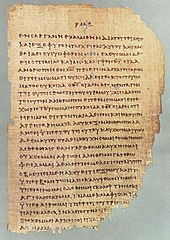
3.The four gospel -is an account describing the life, death, and resurrection of Jesus of Nazareth. The most widely known examples are the four canonical gospels of Matthew, Mark, Luke, and John which are included in the New Testament.
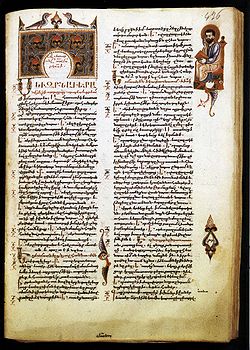
4.The Book of Revelation-is a book of the New Testament that occupies a central place in Christian eschatology,The book spans three literary genres: the epistolary, the apocalyptic, and the prophetic.It begins with John, on the island of Patmos in the Aegean, addressing a letter to the "Seven Churches of Asia". He then describes a series of prophetic visions, including figures such as the Whore of Babylon and the Beast, culminating in the Second Coming of Jesus Christ.
 \
\
5.The Christianity believed that Jesus will sacrifice for humans virgin will pregnant and Jesus will revive again, and he will come to us again.

6.Thomas Anthony Dooley III (January 17, 1927 – January 18, 1961) was an American who, while serving as a physician in the United States Navy and afterwards, became famous for his humanitarian and anti-communist political activities in South East Asia and the United States until his early death from cancer. He authored three popular books that described his activities in Vietnam and Laos: Deliver Us From Evil, The Edge of Tomorrow, and The Night They Burned the Mountain.

7.Immaculate Conception-according to the teaching of the Catholic Church, was the conception of the Blessed Virgin Mary in the womb of her mother, Saint Anne, free from original sin by virtue of
the foreseen merits of her son Jesus Christ. The Catholic Church teaches that Mary was conceived by normal biological means, but God acted upon her soul (keeping her "immaculate") at the time of her conception.
The Immaculate Conception is commonly and mistakenly taken to mean the conception of Mary's son Jesus Christ in her own womb, and the Virgin Birth of Jesus. These are covered by the Doctrine of Incarnation, while the Immaculate Conception deals with the conception of Mary herself, not that of her son.

8.Braille-A tactile writing system used by people who are blind and low vision. It is traditionally written with embossed paper. Braille-users can read computer screens and other electronic supports thanks to refreshable braille displays. They can write braille with the original slate and stylus or type it on a braille writer, such as a portable braille note-taker, or on a computer that prints with a braille embosser.

9.Miranda statment-a right to silence warning given by police in the United States to criminal suspects in police custody , before they are interrogated to preserve the admissibility of their statements against them in criminal proceedings.
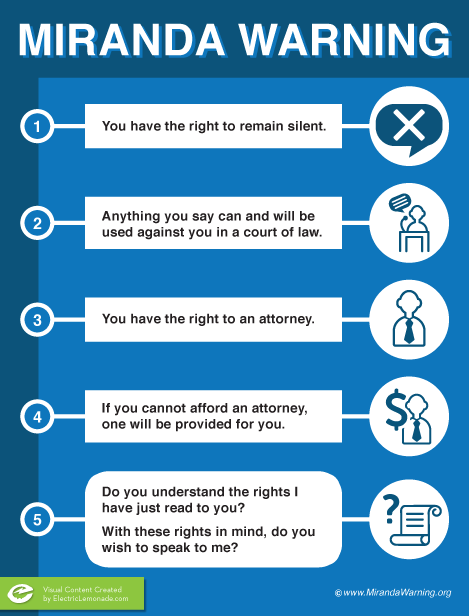
The poem
The Second Coming
BY WILLIAM BUTLER YEATS
Turning and turning in the widening gyre
The falcon cannot hear the falconer;
Things fall apart; the centre cannot hold;
Mere anarchy is loosed upon the world,
The blood-dimmed tide is loosed, and everywhere
The ceremony of innocence is drowned;
The best lack all conviction, while the worst
Are full of passionate intensity.
Surely some revelation is at hand;
Surely the Second Coming is at hand.
The Second Coming! Hardly are those words out
When a vast image out of Spiritus Mundi
Troubles my sight: somewhere in sands of the desert
A shape with lion body and the head of a man,
A gaze blank and pitiless as the sun,
Is moving its slow thighs, while all about it
Reel shadows of the indignant desert birds.
The darkness drops again; but now I know
That twenty centuries of stony sleep
Were vexed to nightmare by a rocking cradle,
And what rough beast, its hour come round at last,
Slouches towards Bethlehem to be born?
1.fra- prefix means"break"
Example-fragile(Easily broken, damaged, or destroyed; frail.)
frailty(A fault, especially weakness of resolution, arising from the imperfections of human nature)
fractal( A geometric pattern that is repeated at ever smaller scales to produce irregular shapes and surfaces that cannot be represented by classical geometry. )
2.ob- prefix means"negative"
Example-obsequious(Full of or exhibiting servile compliance)
obscene(Offensive to accepted standards of decency or modesty)
obfuscation( Hardened in wrongdoing or wickedness)
3.boastful /ˈbəʊstfʊl/ adjective- given to or characterized by boasting
Example: He is boastful of his learning.
4.rosery/ˈrəʊzərɪ/noun -a bed or garden of roses
Example: There is a beautiful rosery in the balcony.
5.afflict /əˈflɪkt/verb-to distress with mental or bodily pain; trouble greatly or grievously
Example:Famine and war still afflict the mankind.
1. Nato Phonetic Alphabet-is the most widely used radio-telephonic spelling alphabet. Although often called "phonetic alphabets", the International Civil Aviation Organization (ICAO) alphabet assigned code words acrophonically to the letters of the English alphabet so that critical combinations of letters and numbers can be pronounced and understood by those who transmit and receive voice messages by radio or telephone regardless of language barriers or the presence of transmission static.

2.The new Testament-is the second major part of the Christian biblical canon, the first part being the Old Testament, based on the Hebrew Bible. The Greek New Testament discusses the teachings and person of Jesus, as well as events in first-century Christianity. Christians regard both the Old and New Testaments together as sacred scripture. The New Testament has frequently accompanied the spread of Christianity around the world. It reflects and serves as a source for Christian theology and morality.

3.The four gospel -is an account describing the life, death, and resurrection of Jesus of Nazareth. The most widely known examples are the four canonical gospels of Matthew, Mark, Luke, and John which are included in the New Testament.

4.The Book of Revelation-is a book of the New Testament that occupies a central place in Christian eschatology,The book spans three literary genres: the epistolary, the apocalyptic, and the prophetic.It begins with John, on the island of Patmos in the Aegean, addressing a letter to the "Seven Churches of Asia". He then describes a series of prophetic visions, including figures such as the Whore of Babylon and the Beast, culminating in the Second Coming of Jesus Christ.
 \
\5.The Christianity believed that Jesus will sacrifice for humans virgin will pregnant and Jesus will revive again, and he will come to us again.

6.Thomas Anthony Dooley III (January 17, 1927 – January 18, 1961) was an American who, while serving as a physician in the United States Navy and afterwards, became famous for his humanitarian and anti-communist political activities in South East Asia and the United States until his early death from cancer. He authored three popular books that described his activities in Vietnam and Laos: Deliver Us From Evil, The Edge of Tomorrow, and The Night They Burned the Mountain.

7.Immaculate Conception-according to the teaching of the Catholic Church, was the conception of the Blessed Virgin Mary in the womb of her mother, Saint Anne, free from original sin by virtue of
the foreseen merits of her son Jesus Christ. The Catholic Church teaches that Mary was conceived by normal biological means, but God acted upon her soul (keeping her "immaculate") at the time of her conception.
The Immaculate Conception is commonly and mistakenly taken to mean the conception of Mary's son Jesus Christ in her own womb, and the Virgin Birth of Jesus. These are covered by the Doctrine of Incarnation, while the Immaculate Conception deals with the conception of Mary herself, not that of her son.

8.Braille-A tactile writing system used by people who are blind and low vision. It is traditionally written with embossed paper. Braille-users can read computer screens and other electronic supports thanks to refreshable braille displays. They can write braille with the original slate and stylus or type it on a braille writer, such as a portable braille note-taker, or on a computer that prints with a braille embosser.
9.Miranda statment-a right to silence warning given by police in the United States to criminal suspects in police custody , before they are interrogated to preserve the admissibility of their statements against them in criminal proceedings.

The poem
The Second Coming
BY WILLIAM BUTLER YEATS
Turning and turning in the widening gyre
The falcon cannot hear the falconer;
Things fall apart; the centre cannot hold;
Mere anarchy is loosed upon the world,
The blood-dimmed tide is loosed, and everywhere
The ceremony of innocence is drowned;
The best lack all conviction, while the worst
Are full of passionate intensity.
Surely some revelation is at hand;
Surely the Second Coming is at hand.
The Second Coming! Hardly are those words out
When a vast image out of Spiritus Mundi
Troubles my sight: somewhere in sands of the desert
A shape with lion body and the head of a man,
A gaze blank and pitiless as the sun,
Is moving its slow thighs, while all about it
Reel shadows of the indignant desert birds.
The darkness drops again; but now I know
That twenty centuries of stony sleep
Were vexed to nightmare by a rocking cradle,
And what rough beast, its hour come round at last,
Slouches towards Bethlehem to be born?
2016年1月7日 星期四
Week 17 Augustine of Hippo, The Confessions (western literature)
1.John Milton (9 December 1608 – 8 November 1674) was an English poet, polemicist, man of letters. He wrote at a time of religious flux and political upheaval, and is best known for his epic poem Paradise Lost (1667), written in blank verse.
Milton's poetry and prose reflect deep personal convictions, a passion for freedom and self-determination, and the urgent issues and political turbulence of his day.

2. Paradise Lost is an epic poem in blank verse by the 17th-century English poet John Milton .It's consisted of ten books (twelve in its 1674 revised version) .The poem concerns the Biblical story of the Fall of Man: the temptation of Adam and Eve by the fallen angel Satan(protagonist) and their expulsion from the Garden of Eden.
Samson Agonistes is a tragic closet drama by John Milton. It appeared with the publication of Milton's Paradise Regain'd.

Paradise Regained is poet John Milton’s sequel to his great epic poem Paradise Lost (1667).It's consists of only four and retells Luke’s account of Jesus’ temptation in the desert by Satan.

3.Samson and Delilah- One day Samson went to Gaza, and everybody in Gaza want to kill him,but he is too strong,some times later he fell in love with Delilah, and The rulers of the Philistines tell her to lure Samson for the people of Gaza can subdue him, then they will give her money,so Delilah try to ask him every time of the method that how to kill him and don't let him sleep, and finally he tells her that if his head of 7 hair were shaved, his strength will disappear, so Delilah let him sleep and kill him.

4.Lucifer=prince of darkness is the King James Version rendering of the Hebrew word in Isaiah 14:12. This word, or occurs only once in the Hebrew Bible and according to Strong's Concordance means "shining one, light bearer". As a result, "'Lucifer' has become a by-word for Satan/the Devil in the church and in popular literature", as in Dante Alighieri's Inferno and John Milton's Paradise Lost.

5.The Divine Comedy is an epic poem by Dante Alighieri, begun c. 1308 and completed 1320. It is widely considered the preeminent work of Italian literature and is seen as one of the greatest works of world literature.The poem's imaginative vision of the afterlife is representative of the medieval world-view as it had developed in the Western Church by the 14th century. It helped establish the Tuscan language, in which it is written, as the standardized Italian language. It is divided into three parts: Inferno, Purgatorio, and Paradiso.
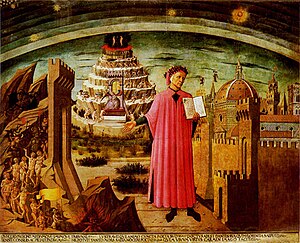
6.Purgatorio is the second part of Dante's Divine Comedy, The poem was written in the early 14th century.It is an allegory telling of the climb of Dante up the Mount of Purgatory, guided by the Roman poet Virgil, is depicted as a mountain in the Southern Hemisphere, consisting of a bottom section (Ante-Purgatory), seven levels of suffering and spiritual growth (associated with the seven deadly sins), and finally the Earthly Paradise at the top.

9.Seven Deadly Sins, also known as the capital vices or cardinal sins, is a Western religious grouping and classification of vices.This grouping emerged in the fourth century AD and was used for Christian ethical education and for confession. According to the Catechism of the Catholic Church, a mortal or deadly sin is believed to destroy the life of grace and charity within a person. Though the sins have fluctuated over time, the currently recognized list includes pride, greed, lust, envy, gluttony, wrath and sloth.

8.A golden parachute is an agreement between a company and an employee specifying that the employee will receive certain significant benefits if employment is terminated. Most definitions specify the employment termination is as a result of a merger or takeover,also known as "Change-in-control benefits", The benefits may include severance pay, cash bonuses, stock options, or other benefits.

9.Daniel "Dan" Brown (born June 22, 1964) is an American author of thriller fiction who is best known for the 2003 bestselling novel The Da Vinci Code. Brown's novels are treasure hunts set in a 24-hour period,and feature the recurring themes of cryptography, keys, symbols, codes, and conspiracy theories. His books have been translated into 52 languages, and as of 2012, sold over 200 million copies. Three of them, Angels & Demons (2000), The Da Vinci Code (2003), and Inferno (2013), have been/are being adapted into films.

10.Moses and Pharaoh
According to the book of Exodus, Moses is born in Israel family,but to prevent from Egyptian killing the new born of Israel, his mom-Jochebed,pass him down to the river,when Pharaoh's daughter adopted Moses as his son, and he live in Egyptian royal family as a prince,but when he grew up and kill a slaver master(he is murdering a slave of Hebrew ), he fled to Mdian,so he see a burning bush on the mountain,and meet the God of Israel,and tell him to release the Hebrew slavery,if Pharaoh don't accept,he will give ten plague to Egyptian.

As Pharaoh don't release the slavery,the God kill his favorite snakes and turn the Nile river into blood,send frogs into whole city,Gnats and flies, all the livestock got sick and died, all the Egyptian get sick and all the crops died and last plague is God will take the new born life of Egyptian,so Israel need to smear the blood of their sheep or goat on the door,so he will pass through.
When Pharaoh's son died,he finally release Israel's slavery and Moses bring them to Red River,and Pharaoh have bring troops to kill them,because he change his mind,then Moses reach out his stuff, and the river split into two side,when Israel's slavers all pass through, he take off the stuff, and Pharaoh's troop can't kill them,so during 40 years of traveling,Moses bring Israel to Canaan.
11.Ten Commandment are a set of commandments which the Bible describes as having been given to the Israelite by God at biblical Mount Sinai. Both versions state that God inscribed them on two stone tablets, which he gave to Moses. According to New Testament writers, the Ten Commandments are clearly attributed to Moses.The commandments include instructions to worship only God, to honour parents, and to keep the sabbath; as well as prohibitions against idolatry, blasphemy, murder, adultery, theft, dishonesty, and coveting.
"Thou shalt not take the name of the Lord thy God in vain" is one of the Ten Commandments-"You shall not make wrongful use of the name of the Lord your God"
12.Catherine the Great (2 May 1729 – 17 November 1796), was the most renowned and the longest-ruling female leader of Russia, reigning from 1762 until her death in the age of 67. She was born in Stettin, Pomerania, and came to power following a coup d'état when her husband, Peter III, was assassinated. Russia was revitalized under her reign, growing larger and stronger than ever and becoming recognized as one of the great powers of Europe.

13.The eight-day festival of Passover is celebrated in the early spring, from the 15th through the 22nd of the Hebrew month of Nissan. It commemorates the emancipation of the Israelites from slavery in ancient Egypt. And, by following the rituals of Passover, we have the ability to relive and experience the true freedom that our ancestors gained.They eat the bread they baked as provisions for the way did not have time to rise.

14.The Jewish diaspora or Exile refers to the dispersion of Israelites, Judahites, and later Jews out of what is considered their ancestral homeland (the Land of Israel) and the communities built by them across the world.
In terms of the Hebrew Bible, the term "Exile" denotes the fate of the Israelites who were taken into exile from the Kingdom of Israel during the 8th century BCE, and the Judahites from the Kingdom of Judah who were taken into exile during the 6th century BCE.

15. Manna is an edible substance that, according to the Bible and the Quran, God provided for the Israelites during their travels in the desert,according to the Book of Exodus, it's described like the food seed in the ground for Israel to collect and it will melt when the sun came out.
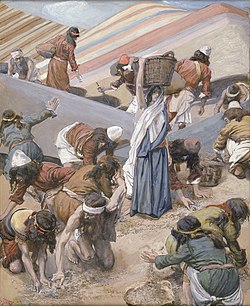
16.Sermon on the Mount is a collection of sayings and teachings of Jesus, which emphasizes his moral teaching found in the Gospel of Matthew.The Sermon is the longest piece of teaching from Jesus in the New Testament, and has been one of the most widely quoted elements of the Canonical Gospels.It includes some of the best known teachings of Jesus, such as the Beatitudes, and the widely recited Lord's Prayer. To most believers in Jesus, the Sermon on the Mount contains the central tenets of Christian discipleship.
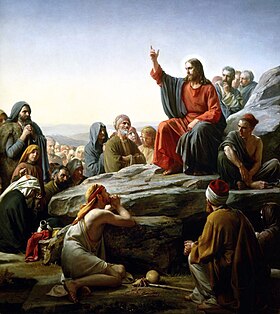
17.The Prodigal son is one of the parables of Jesus. It appears in only one of the Canonical gospels of the New Testament, the Gospel of Luke.. According to the story, a father has two sons. The younger son asks for his inheritance before the father dies, and the father agrees. The younger son, after wasting his fortune (the word "prodigal" means "wastefully extravagant"),He then returns home with the intention of repenting and begging his father to be one of his hired servants, expecting his relationship with his father is likely severed. Regardless, the father finds him on the road and immediately welcomes him back as his son and holds a feast to celebrate his return.
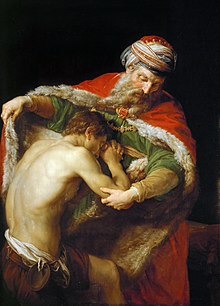
18. Didacticism is a philosophy that emphasizes instructional and informative qualities in literature and other types of art, The term has its origin in the Ancient Greek word,"related to education and teaching", and signified learning in a fascinating and intriguing manner.
Vocabulary
1.para- prefix means"side by side"
Example-parallel(extending in the same direction, equidistant at all points, and never converging or diverging)
parasite(an organism that lives on or in an organism of another species, known as the host, from the body of which it obtains nutriment.)
parasol(a lightweight umbrella used, especially by women, as a sunshade.)
2.agony/ˈæg ə ni/ noun-extreme and generally prolonged pain; intense physical or mental suffering.
Example-The former chess champion said he remembered screaming in agony.
3.reconciliation/ˌrɛk ənˌsɪl iˈeɪ ʃən/noun- an end of disagreement and the start of a good relationship again.
Example-I do not envy him this ministry of reconciliation, which is fraught with complexity and nuance.
4.fable/ˈfeɪ bəl/ noun-a short tale to teach a moral lesson, often with animals or inanimate objects as characters.
Example-The fable tells us that if policymakers foster competition and cut taxes, the rest will pretty much work itself out.
5.allegory/ˈæl əˌgɔr i/noun-a representation of an abstract or spiritual meaning through concrete or material forms.
Example-The painting is at the Metropolitan Museum, which considers it an allegory of the sense of sight.
6.parable/ˈpær ə bəl/ noun-a short allegorical story designed to illustrate or teach some truth, religious principle, or moral lesson.
Example-Expecting otherwise is enough to make one recite the parable of the Old Woman and the Snake.
The song
Hark the Herald Angel Sing
Hark the herald angels sing
"Glory to the newborn King!
Peace on earth and mercy mild
God and sinners reconciled"
Joyful, all ye nations rise
Join the triumph of the skies
With the angelic host proclaim:
"Christ is born in Bethlehem"
Hark! The herald angels sing"Glory to the newborn King!"
Christ by highest heav'n adored
Christ the everlasting Lord!
Late in time behold Him come
Offspring of a Virgin's womb
Veiled in flesh the Godhead see
Hail the incarnate Deity
Pleased as man with man to dwell
Jesus, our Emmanuel
Hark! The herald angels sing
"Glory to the newborn King!"
Hail the heav'n-born Prince of Peace!
Hail the Son of Righteousness!
Light and life to all He brings
Ris'n with healing in His wings
Mild He lays His glory by
Born that man no more may die
Born to raise the sons of earth
Born to give them second birth
Hark! The herald angels sing
"Glory to the newborn King!"
https://www.youtube.com/watch?v=wbdvo019mgM
Milton's poetry and prose reflect deep personal convictions, a passion for freedom and self-determination, and the urgent issues and political turbulence of his day.

2. Paradise Lost is an epic poem in blank verse by the 17th-century English poet John Milton .It's consisted of ten books (twelve in its 1674 revised version) .The poem concerns the Biblical story of the Fall of Man: the temptation of Adam and Eve by the fallen angel Satan(protagonist) and their expulsion from the Garden of Eden.
Samson Agonistes is a tragic closet drama by John Milton. It appeared with the publication of Milton's Paradise Regain'd.

Paradise Regained is poet John Milton’s sequel to his great epic poem Paradise Lost (1667).It's consists of only four and retells Luke’s account of Jesus’ temptation in the desert by Satan.

3.Samson and Delilah- One day Samson went to Gaza, and everybody in Gaza want to kill him,but he is too strong,some times later he fell in love with Delilah, and The rulers of the Philistines tell her to lure Samson for the people of Gaza can subdue him, then they will give her money,so Delilah try to ask him every time of the method that how to kill him and don't let him sleep, and finally he tells her that if his head of 7 hair were shaved, his strength will disappear, so Delilah let him sleep and kill him.

4.Lucifer=prince of darkness is the King James Version rendering of the Hebrew word in Isaiah 14:12. This word, or occurs only once in the Hebrew Bible and according to Strong's Concordance means "shining one, light bearer". As a result, "'Lucifer' has become a by-word for Satan/the Devil in the church and in popular literature", as in Dante Alighieri's Inferno and John Milton's Paradise Lost.

5.The Divine Comedy is an epic poem by Dante Alighieri, begun c. 1308 and completed 1320. It is widely considered the preeminent work of Italian literature and is seen as one of the greatest works of world literature.The poem's imaginative vision of the afterlife is representative of the medieval world-view as it had developed in the Western Church by the 14th century. It helped establish the Tuscan language, in which it is written, as the standardized Italian language. It is divided into three parts: Inferno, Purgatorio, and Paradiso.

6.Purgatorio is the second part of Dante's Divine Comedy, The poem was written in the early 14th century.It is an allegory telling of the climb of Dante up the Mount of Purgatory, guided by the Roman poet Virgil, is depicted as a mountain in the Southern Hemisphere, consisting of a bottom section (Ante-Purgatory), seven levels of suffering and spiritual growth (associated with the seven deadly sins), and finally the Earthly Paradise at the top.

9.Seven Deadly Sins, also known as the capital vices or cardinal sins, is a Western religious grouping and classification of vices.This grouping emerged in the fourth century AD and was used for Christian ethical education and for confession. According to the Catechism of the Catholic Church, a mortal or deadly sin is believed to destroy the life of grace and charity within a person. Though the sins have fluctuated over time, the currently recognized list includes pride, greed, lust, envy, gluttony, wrath and sloth.

8.A golden parachute is an agreement between a company and an employee specifying that the employee will receive certain significant benefits if employment is terminated. Most definitions specify the employment termination is as a result of a merger or takeover,also known as "Change-in-control benefits", The benefits may include severance pay, cash bonuses, stock options, or other benefits.

9.Daniel "Dan" Brown (born June 22, 1964) is an American author of thriller fiction who is best known for the 2003 bestselling novel The Da Vinci Code. Brown's novels are treasure hunts set in a 24-hour period,and feature the recurring themes of cryptography, keys, symbols, codes, and conspiracy theories. His books have been translated into 52 languages, and as of 2012, sold over 200 million copies. Three of them, Angels & Demons (2000), The Da Vinci Code (2003), and Inferno (2013), have been/are being adapted into films.

10.Moses and Pharaoh
According to the book of Exodus, Moses is born in Israel family,but to prevent from Egyptian killing the new born of Israel, his mom-Jochebed,pass him down to the river,when Pharaoh's daughter adopted Moses as his son, and he live in Egyptian royal family as a prince,but when he grew up and kill a slaver master(he is murdering a slave of Hebrew ), he fled to Mdian,so he see a burning bush on the mountain,and meet the God of Israel,and tell him to release the Hebrew slavery,if Pharaoh don't accept,he will give ten plague to Egyptian.

As Pharaoh don't release the slavery,the God kill his favorite snakes and turn the Nile river into blood,send frogs into whole city,Gnats and flies, all the livestock got sick and died, all the Egyptian get sick and all the crops died and last plague is God will take the new born life of Egyptian,so Israel need to smear the blood of their sheep or goat on the door,so he will pass through.
When Pharaoh's son died,he finally release Israel's slavery and Moses bring them to Red River,and Pharaoh have bring troops to kill them,because he change his mind,then Moses reach out his stuff, and the river split into two side,when Israel's slavers all pass through, he take off the stuff, and Pharaoh's troop can't kill them,so during 40 years of traveling,Moses bring Israel to Canaan.
11.Ten Commandment are a set of commandments which the Bible describes as having been given to the Israelite by God at biblical Mount Sinai. Both versions state that God inscribed them on two stone tablets, which he gave to Moses. According to New Testament writers, the Ten Commandments are clearly attributed to Moses.The commandments include instructions to worship only God, to honour parents, and to keep the sabbath; as well as prohibitions against idolatry, blasphemy, murder, adultery, theft, dishonesty, and coveting.
"Thou shalt not take the name of the Lord thy God in vain" is one of the Ten Commandments-"You shall not make wrongful use of the name of the Lord your God"
12.Catherine the Great (2 May 1729 – 17 November 1796), was the most renowned and the longest-ruling female leader of Russia, reigning from 1762 until her death in the age of 67. She was born in Stettin, Pomerania, and came to power following a coup d'état when her husband, Peter III, was assassinated. Russia was revitalized under her reign, growing larger and stronger than ever and becoming recognized as one of the great powers of Europe.

13.The eight-day festival of Passover is celebrated in the early spring, from the 15th through the 22nd of the Hebrew month of Nissan. It commemorates the emancipation of the Israelites from slavery in ancient Egypt. And, by following the rituals of Passover, we have the ability to relive and experience the true freedom that our ancestors gained.They eat the bread they baked as provisions for the way did not have time to rise.

14.The Jewish diaspora or Exile refers to the dispersion of Israelites, Judahites, and later Jews out of what is considered their ancestral homeland (the Land of Israel) and the communities built by them across the world.
In terms of the Hebrew Bible, the term "Exile" denotes the fate of the Israelites who were taken into exile from the Kingdom of Israel during the 8th century BCE, and the Judahites from the Kingdom of Judah who were taken into exile during the 6th century BCE.

15. Manna is an edible substance that, according to the Bible and the Quran, God provided for the Israelites during their travels in the desert,according to the Book of Exodus, it's described like the food seed in the ground for Israel to collect and it will melt when the sun came out.

16.Sermon on the Mount is a collection of sayings and teachings of Jesus, which emphasizes his moral teaching found in the Gospel of Matthew.The Sermon is the longest piece of teaching from Jesus in the New Testament, and has been one of the most widely quoted elements of the Canonical Gospels.It includes some of the best known teachings of Jesus, such as the Beatitudes, and the widely recited Lord's Prayer. To most believers in Jesus, the Sermon on the Mount contains the central tenets of Christian discipleship.

17.The Prodigal son is one of the parables of Jesus. It appears in only one of the Canonical gospels of the New Testament, the Gospel of Luke.. According to the story, a father has two sons. The younger son asks for his inheritance before the father dies, and the father agrees. The younger son, after wasting his fortune (the word "prodigal" means "wastefully extravagant"),He then returns home with the intention of repenting and begging his father to be one of his hired servants, expecting his relationship with his father is likely severed. Regardless, the father finds him on the road and immediately welcomes him back as his son and holds a feast to celebrate his return.

18. Didacticism is a philosophy that emphasizes instructional and informative qualities in literature and other types of art, The term has its origin in the Ancient Greek word,"related to education and teaching", and signified learning in a fascinating and intriguing manner.
Vocabulary
1.para- prefix means"side by side"
Example-parallel(extending in the same direction, equidistant at all points, and never converging or diverging)
parasite(an organism that lives on or in an organism of another species, known as the host, from the body of which it obtains nutriment.)
parasol(a lightweight umbrella used, especially by women, as a sunshade.)
2.agony/ˈæg ə ni/ noun-extreme and generally prolonged pain; intense physical or mental suffering.
Example-The former chess champion said he remembered screaming in agony.
3.reconciliation/ˌrɛk ənˌsɪl iˈeɪ ʃən/noun- an end of disagreement and the start of a good relationship again.
Example-I do not envy him this ministry of reconciliation, which is fraught with complexity and nuance.
4.fable/ˈfeɪ bəl/ noun-a short tale to teach a moral lesson, often with animals or inanimate objects as characters.
Example-The fable tells us that if policymakers foster competition and cut taxes, the rest will pretty much work itself out.
5.allegory/ˈæl əˌgɔr i/noun-a representation of an abstract or spiritual meaning through concrete or material forms.
Example-The painting is at the Metropolitan Museum, which considers it an allegory of the sense of sight.
6.parable/ˈpær ə bəl/ noun-a short allegorical story designed to illustrate or teach some truth, religious principle, or moral lesson.
Example-Expecting otherwise is enough to make one recite the parable of the Old Woman and the Snake.
The song
Hark the Herald Angel Sing
Hark the herald angels sing
"Glory to the newborn King!
Peace on earth and mercy mild
God and sinners reconciled"
Joyful, all ye nations rise
Join the triumph of the skies
With the angelic host proclaim:
"Christ is born in Bethlehem"
Hark! The herald angels sing"Glory to the newborn King!"
Christ by highest heav'n adored
Christ the everlasting Lord!
Late in time behold Him come
Offspring of a Virgin's womb
Veiled in flesh the Godhead see
Hail the incarnate Deity
Pleased as man with man to dwell
Jesus, our Emmanuel
Hark! The herald angels sing
"Glory to the newborn King!"
Hail the heav'n-born Prince of Peace!
Hail the Son of Righteousness!
Light and life to all He brings
Ris'n with healing in His wings
Mild He lays His glory by
Born that man no more may die
Born to raise the sons of earth
Born to give them second birth
Hark! The herald angels sing
"Glory to the newborn King!"
https://www.youtube.com/watch?v=wbdvo019mgM
2016年1月4日 星期一
Week 16 The New Testament (western literature)
1. Divine Comedy-is an epic poem by Dante Alighieri, begun c. 1308 and completed 1320. It is widely considered the preeminent work of Italian literature and is seen as one of the greatest works of world literature.
The poem's imaginative vision of the afterlife is representative of the medieval world-view as it had developed in the Western Church by the 14th century. It helped establish the Tuscan language, in which it is written, as the standardized Italian language.It is divided into three parts: Inferno, Purgatorio, and Paradiso.


2.Psalm-is the first book of the Ketuvim , the third section of the Hebrew Bible, and a book of the Christian Old Testament.The title is derived from the Greek translation, meaning "instrumental music".
The book is an anthology of individual psalms, with 150 in the Jewish and Western Christian tradition and more in the Eastern Christian churches. Many of the psalms are linked to the name of King David.
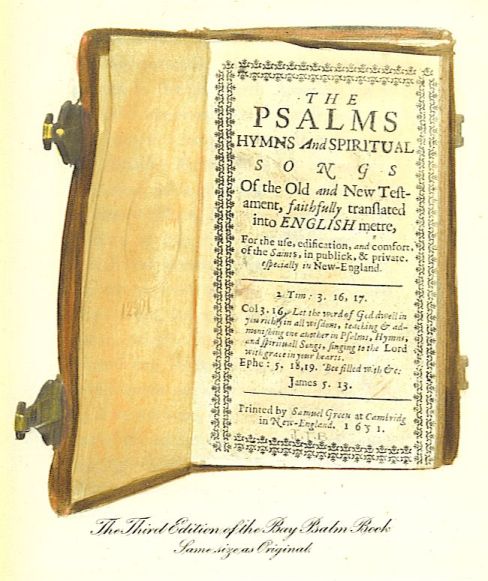
3.Psalm 23

4. Martin Luther (10 November 1483 – 18 February 1546)- was a German friar, priest, professor of theology, and a seminal figure in the Protestant Reformation.Initially an Augustinian friar, Luther came to reject several teachings and practices of the Roman Catholic Church. He strongly disputed the claim that freedom from God's punishment for sin could be purchased with money.
He taught that salvation and subsequently eternal life is not earned by good deeds but is received only as a free gift of God's grace through faith in Jesus Christ as redeemer from sin. His theology challenged the authority and office of the Pope by teaching that the Bible is the only source of divinely revealed knowledge from God.
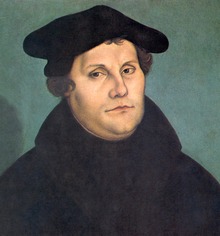
5.Protestantism- is a form of Christian faith and practice which originated with the Protestant Reformation, a movement against what its followers considered to be errors in the Roman Catholic Church. It is one of the three major divisions of Christendom, together with Roman Catholicism and Eastern Orthodoxy.
Anglicanism is sometimes considered to be independent from Protestantism.The term derives from the letter of protestation from Lutheran princes in 1529 against an edict condemning the teachings of Martin Luther as heretical.

6. Catholicism-refer to the practices of several Christian churches. This sense is to be distinguished from the use of these words to refer to the Roman Catholic Church, that which is in full communion with the Holy See, as well as the Orthodox Catholic Church, which also considers itself the universal and apostolic church.
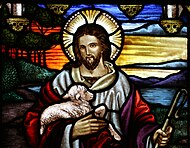
7.Noah and the flood-God want Noah to build the ark and bring his family with two all living creatures,male and female, because God will destroy the earth with flooding,also warn don't look back,but when his wife just looking back,she turn into stone as punishment.

8.Raven(Omen) and Dove(Peace)-When the flood is over,Noah send the black raven outside to check if the rain is stop, but it never come back,so we relate the black raven as bad fortune, and on the other hand,when the white dove was send and did came back with a olive leaf in its mouth,such as Taiwan's police logo or Korean.


9.Prometheus and Pandora-When Prometheus steal the fire from Zeus for mankind,his punishment is get chained and eat by birds, but he always grow back, so Zeus demand Hephaestus create a beauty woman-Pandora, Zeus give her a mysterious jar with bad things, warned her not to open it.
Zeus let Hermes takes Pandora to Epimetheus(Prometheus's brother)as his bride,when Prometheus warned him bot to accept, but he did,finally when Pandara was curious of the jar, she just open the jar,and this is the end of humanity with a lot of plague.
10.Freewill Salvation The Fall-When Adam and Eve eat the forbidden fruit(apple tree),their eye wide open, and realize they are naked, so they use fig to cover the body,and God drive them out of Garden of Eden with judgement, they have to grow their own food,Adam need to work hard, and Eve have the pain of labor(childbirth),the snake lost the feet to walk.

11.Cain and Abel(sons of Adam and Cain)- Cain is described as a crop farmer and his younger brother Abel as a shepherd. Cain was the first human born and Abel was the first human to die. Cain committed the first murder by killing Abel.

Vocabulary
1.mor/mort-prefix means"to die"
Example- morgue(a place in which dead bodies are kept until they have been identified or disposed of.)
mortician(one who conducts the preparation of a dead person's body for burial and directs funeral services.)
mortal(the state or condition of being subject to death; mortal character, nature, or existence.)
2.frag/fra-prefix means"to break"
Example-fragment(a part broken off or detached)
fragile(easily broken, shattered, or damaged; delicate; brittle; frail)
frailty(moral weakness; liability to yield to temptation.)
3.greedy/ˈgri di/ adjective-excessively or inordinately desirous of wealth.
Example-They also are sure to continue portraying millionaire Mitt as the greedy capitalist devil incarnate.
4.monotheism/ˈmɒn ə θiˌɪz əm/noun -the doctrine or belief that there is only one God.
Example-The question between polytheism and monotheism, which has loomed so large to some minds, never troubled him.
5.scarecrow-/ˈskɛərˌkroʊ/ noun- an object, usually a figure of a person in old clothes, set up to frighten crows or other birds away from crops.
Example-His size 22 feet splayed out in front of him, he resembles an oversize version of the scarecrow in The Wizard of Oz.
The video
Presidential Farewell Speech George W Bush
https://www.youtube.com/watch?v=fFqezJcneeI
The book
William Shakespeare's Helmet:
Must I remember? why, she would hang on him,
As if increase of appetite had grown
By what it fed on: and yet, within a month
Let me not think on't - Frailty, thy name is woman!
A little month, or ere those shoes were old
With which she follow'd my poor father's body.
The poem's imaginative vision of the afterlife is representative of the medieval world-view as it had developed in the Western Church by the 14th century. It helped establish the Tuscan language, in which it is written, as the standardized Italian language.It is divided into three parts: Inferno, Purgatorio, and Paradiso.


2.Psalm-is the first book of the Ketuvim , the third section of the Hebrew Bible, and a book of the Christian Old Testament.The title is derived from the Greek translation, meaning "instrumental music".
The book is an anthology of individual psalms, with 150 in the Jewish and Western Christian tradition and more in the Eastern Christian churches. Many of the psalms are linked to the name of King David.

3.Psalm 23

4. Martin Luther (10 November 1483 – 18 February 1546)- was a German friar, priest, professor of theology, and a seminal figure in the Protestant Reformation.Initially an Augustinian friar, Luther came to reject several teachings and practices of the Roman Catholic Church. He strongly disputed the claim that freedom from God's punishment for sin could be purchased with money.
He taught that salvation and subsequently eternal life is not earned by good deeds but is received only as a free gift of God's grace through faith in Jesus Christ as redeemer from sin. His theology challenged the authority and office of the Pope by teaching that the Bible is the only source of divinely revealed knowledge from God.

5.Protestantism- is a form of Christian faith and practice which originated with the Protestant Reformation, a movement against what its followers considered to be errors in the Roman Catholic Church. It is one of the three major divisions of Christendom, together with Roman Catholicism and Eastern Orthodoxy.
Anglicanism is sometimes considered to be independent from Protestantism.The term derives from the letter of protestation from Lutheran princes in 1529 against an edict condemning the teachings of Martin Luther as heretical.

6. Catholicism-refer to the practices of several Christian churches. This sense is to be distinguished from the use of these words to refer to the Roman Catholic Church, that which is in full communion with the Holy See, as well as the Orthodox Catholic Church, which also considers itself the universal and apostolic church.

7.Noah and the flood-God want Noah to build the ark and bring his family with two all living creatures,male and female, because God will destroy the earth with flooding,also warn don't look back,but when his wife just looking back,she turn into stone as punishment.
8.Raven(Omen) and Dove(Peace)-When the flood is over,Noah send the black raven outside to check if the rain is stop, but it never come back,so we relate the black raven as bad fortune, and on the other hand,when the white dove was send and did came back with a olive leaf in its mouth,such as Taiwan's police logo or Korean.


Zeus let Hermes takes Pandora to Epimetheus(Prometheus's brother)as his bride,when Prometheus warned him bot to accept, but he did,finally when Pandara was curious of the jar, she just open the jar,and this is the end of humanity with a lot of plague.
10.Freewill Salvation The Fall-When Adam and Eve eat the forbidden fruit(apple tree),their eye wide open, and realize they are naked, so they use fig to cover the body,and God drive them out of Garden of Eden with judgement, they have to grow their own food,Adam need to work hard, and Eve have the pain of labor(childbirth),the snake lost the feet to walk.
11.Cain and Abel(sons of Adam and Cain)- Cain is described as a crop farmer and his younger brother Abel as a shepherd. Cain was the first human born and Abel was the first human to die. Cain committed the first murder by killing Abel.

Vocabulary
1.mor/mort-prefix means"to die"
Example- morgue(a place in which dead bodies are kept until they have been identified or disposed of.)
mortician(one who conducts the preparation of a dead person's body for burial and directs funeral services.)
mortal(the state or condition of being subject to death; mortal character, nature, or existence.)
2.frag/fra-prefix means"to break"
Example-fragment(a part broken off or detached)
fragile(easily broken, shattered, or damaged; delicate; brittle; frail)
frailty(moral weakness; liability to yield to temptation.)
3.greedy/ˈgri di/ adjective-excessively or inordinately desirous of wealth.
Example-They also are sure to continue portraying millionaire Mitt as the greedy capitalist devil incarnate.
4.monotheism/ˈmɒn ə θiˌɪz əm/noun -the doctrine or belief that there is only one God.
Example-The question between polytheism and monotheism, which has loomed so large to some minds, never troubled him.
5.scarecrow-/ˈskɛərˌkroʊ/ noun- an object, usually a figure of a person in old clothes, set up to frighten crows or other birds away from crops.
Example-His size 22 feet splayed out in front of him, he resembles an oversize version of the scarecrow in The Wizard of Oz.
The video
Presidential Farewell Speech George W Bush
https://www.youtube.com/watch?v=fFqezJcneeI
The book
William Shakespeare's Helmet:
Must I remember? why, she would hang on him,
As if increase of appetite had grown
By what it fed on: and yet, within a month
Let me not think on't - Frailty, thy name is woman!
A little month, or ere those shoes were old
With which she follow'd my poor father's body.
訂閱:
意見 (Atom)